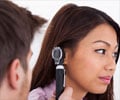Researchers from Purdue University say that cell phones and portable digital music systems are the reason why more and more young people are having
Researchers from Purdue University say that cell phones and portable digital music systems are the reason why more and more young people are having hearing problems that are typical of the middle and old ages.
"We're starting to see hearing loss in young adults that we expect to diagnose in middle-aged adults," says Robert Novak, director of clinical education in audiology and associate department head. "This loss is often self-induced and may be related to young people's exposure to amplified sound and use of personal listening systems, such as cell phones and portable music devices, that students seem to be always using. The damage can be temporary or permanent."In addition to hearing loss, too much noise exposure can result in hearing constant ringing, called tinnitus.
"People, especially young adults on a college campus, have something in their ears almost all the time as they walk from class, visit the library, work in the computer lab, drive in their cars and rest in their apartments," Novak says. "Their ears have very little quiet time to recover from noise exposure. Often, listeners play music too loudly to drown out the background noise in these environments. A healthier alternative is to find a truly quiet place to study and minimize the use of headphones coupled directly to the ear."
Novak says adults should ask themselves the following questions to determine if they should contact their hearing health-care provider for a hearing screening:
1) Do you frequently have to ask people to repeat themselves?
2) Do you have difficulty hearing when someone speaks in a whisper?
Advertisement
4) Do you have difficulty following conversation in a noisy environment?
5) Do you avoid groups of people because of hearing difficulty?
Advertisement
Students with hearing loss also may struggle academically if a professor speaks quickly or with an accent, Novak says. Students who think they might be having hearing problems should sit in the front of the classroom or at least in a seat where they can see the instructor's face and minimize interference from other classroom noises.
"They should also let their instructors know what he or she can do to help them - things such as talking louder, using more visual aids, facing the class when talking," he says. "All larger classrooms should have speaker amplification systems installed, but they are often not in place or are not operational. If students suspect hearing loss, they should see an audiologist."
Source: Newswise








